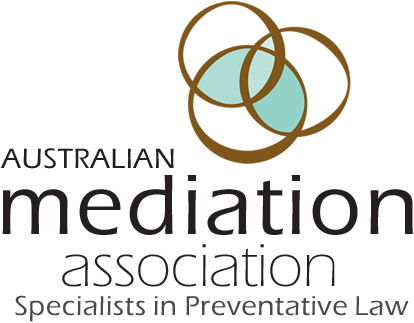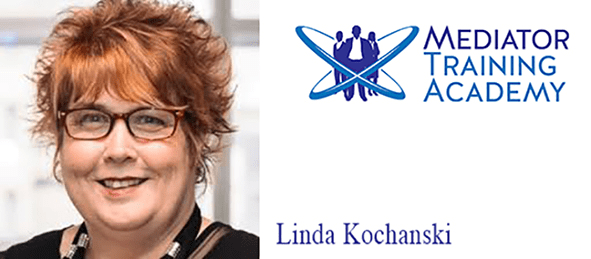Linda Kochanski wins Family Dispute Resolution Practitioner (‘FDRP’) of the Year and Alternative Dispute Resolution (‘ADR’) Academic of the Year. Linda is Advisory Board Member for the Mediator Training Academy. She also advises for the Academy’s CHC81115 Graduate Diploma of Family Dispute Resolution.
Self-professed ‘pracademic’ Linda Kochanski recently received two major honours – Family Dispute Resolution Practitioner (‘FDRP’) of the Year and Alternative Dispute Resolution (‘ADR’) Academic of the Year. What she enjoys most about her work and teaching, and what advice she has for practitioners looking to succeed in ADR and FDRP.
“I have always felt that ADR practice should educate research, and that research needs to support practice,” said Linda, who felt her recent awards may have been in recognition of these principles. “In this sense, I have always considered myself a ‘Pracademic.’ It’s been surprising, but of course very gratifying to be recognised for my work.”
Linda’s awards recognise her depth and breadth of experience, which spans face to face mediations, telephone and online mediation, and the community and private sectors. Such variety of experience allows Linda to adapt her mediation practice to a range of contexts, providing a rich source of practical scenarios for her students.
“It’s probably a cliché but being able to help the parties in mediation during their most stressful times is incredibly satisfying,” said Linda. “Through our work, we can give clients the opportunity to make decisions regarding their children and their property. In the case of children, this often means assisting parents to be able to co-parent as effectively as they can in light of their changed circumstances.”
Family dispute resolution is an area which has seen significant change in recent years. Much of that change is still ongoing, which can be a challenge as a practitioner and an academic.
“These continuing changes to practice, particularly in family dispute resolution, means it is essential to ensure what is happening in practice is replicated and taught in Family Dispute Resolution programs.”
To succeed in family dispute resolution often requires a light touch; to be more of a facilitator rather than an active problem solver. In Linda’s experience, this can often be a tripping point for less experienced FDR practitioners.
“You need to realise that family dispute resolution is all about the self-determination of the parties. The parties need to drive the discussion around their issues and take ownership of the outcomes. This will give the mediation the best chance of succeeding in the long run.”
Believing in the FDR process is essential.
“Unless you are convinced by what family dispute resolution can do for the parties, you won’t achieve the outcomes that the parties hope to achieve. Family dispute resolution is all about the self-determination of the parties regarding their issues. It can be hard for some professionals to stop being problem-solvers!”
It is the nuanced role mediators play in FDR that appeals most to Linda.
“I am there to assist, not to solve,” said Linda.



